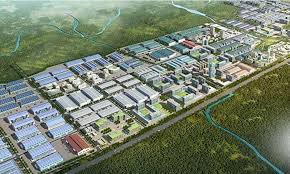CAEDA to collaborate on establishment of ‘Pakistan Zero-Tariff Trade Zone’

Islamabad: The China Asia Economic Development Association (CAEDA) here expressed interest in collaborating with Pakistan on a range of economic initiatives, including establishment of the “Pakistan Zero-Tariff Trade Zone,” and center for Chinese imports, besides exploring opportunities in agriculture, livestock investment, export projects, and B2B investment potential.
The association expressed the interest during a meeting of its delegation with Minister for Planning, Development, and Special Initiatives, Ahsan Iqbal. The CAEDA delegation was led by Qian Qiu Zhu and Jian Jun Guo, according to press release issued by planning ministry.
Welcoming the delegation, Minister Ahsan Iqbal reaffirmed the deep bond between Pakistan and China, referring to the two nations as “iron brothers” with a unique relationship.
He acknowledged the recent tragic terrorist attack in Karachi, which took place two days ago, as an attempt by adversaries to disrupt the China-Pakistan Economic Corridor (CPEC) project.
“The Government of Pakistan is committed to ensuring the safety and security of our Chinese brothers and sisters, who are national guests and heroes contributing to Pakistan’s development,” he said, according to an official statement.
The Minister assured that such isolated incidents do not reflect the overall situation in Pakistan, emphasizing that hundreds of Chinese nationals work safely in the country, which remains a welcoming and secure destination for Chinese investment.
He highlighted the upcoming phase of CPEC, with a focus on fostering B2B partnerships. He underscored the significant potential for collaboration between Pakistani and Chinese enterprises, aiming to build upon the government-to-government cooperation achieved thus far in establishing essential infrastructure.
He further outlined Pakistan’s long-term Economic Transformation Plan, aimed at encouraging foreign direct investment and boosting exports to address challenges within the economy, particularly in the export sector.
The Minister identified several broad areas for potential cooperation, particularly the reallocation of Chinese industries to Pakistan.
He noted that Pakistan’s labor and production costs were considerably lower than those in China, presenting an opportunity for Chinese enterprises to produce goods in Pakistan for export to markets in Europe and the United States, thereby circumventing high tariffs imposed on Chinese imports.
Minister Ahsan Iqbal highlighted the opportunities within Pakistan’s agricultural sector, particularly in regions such as Gilgit-Baltistan, where products like cherries can be exported at competitive prices to China.
He emphasized Pakistan’s rich resources in minerals, fisheries, agriculture, and textiles, all sectors where China could collaborate with local investors. He stated that Pakistan seeks advanced technology, modern equipment, and skills from China to elevate these industries further.
Discussing Special Economic Zones (SEZs), Minister Iqbal emphasized the opportunities available to the Chinese business community for investment and development.
He committed to supporting Chinese investors and highlighted the significance of a one-stop service center to facilitate matchmaking between Pakistani and Chinese enterprises, enhancing cooperation between the two nations.





